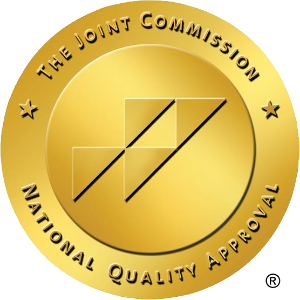Various studies and research continue to tout the science and benefits of happiness. Unqualified self-acceptance and connectivity allow us to feel a greater sense of accomplishment and joy. “There is evidence that happiness is contagious, that happier people help those around them to become happier too. A study published in the British Medical Journal followed people over 20 years and found that their happiness affected others in their network across “three degrees of separation”. In other words, our happiness level has a measurable impact on the mood of our friend’s, friend’s, friend.” Happiness and health go hand-in-hand.
Happiness Requires Energy, Growth, Adventure & Curiosity
What makes a good life? The Harvard Study of Adult Development studied over 700 sophomores at Harvard College and boys from the poorest Boston neighborhoods. “The surprising finding is that our relationships and how happy we are in our relationships has a powerful influence on our health,” said Robert Walding er, director of the study, a psychiatrist at Massachusetts General Hospital and a professor of psychiatry at Harvard Medical School. “Taking care of your body is important, but tending to your relationships is a form of self-care too. That, I think, is the revelation.” Close relationships, more than money or fame, are what keep people happy throughout their lives, the study revealed.
er, director of the study, a psychiatrist at Massachusetts General Hospital and a professor of psychiatry at Harvard Medical School. “Taking care of your body is important, but tending to your relationships is a form of self-care too. That, I think, is the revelation.” Close relationships, more than money or fame, are what keep people happy throughout their lives, the study revealed.
Seeking happiness helps us define greater meaning and higher satisfaction in life. Happiness by definition does not mean we should experience constant pleasure, rather, it’s our ability to feel positive emotions and recover from negative emotions. It is our ability to connect with others, build meaningful relationships and belong to a community.
Happiness requires energy, growth, adventure, and curiosity. Don’t hide from negative feelings. For example, use your negative feelings as a signal to make change or adapt so you can begin to see things differently. Use anger to help you stand up for your beliefs and guilt to motivate you to push forward and improve. Learning to tolerate emotion before dismissing it helps us develop mental flexibility and gain self-confidence.
It’s important to find balance between pleasure and purpose. When we choose to delay short-term pleasures for more meaningful opportunities, it can lead to greater long-term satisfaction. When we lose ourselves in activities that allow us to express gratitude, volunteer or help others, it helps us feel engaged and work through negative thoughts or emotions. As we do things we love for people or causes we care about, it allows us to experience happiness instead of perpetually chasing after it. Our hormones and brain activity naturally increase when we are engaged in helping others and providing service for them.
The Neurochemistry Of Happiness
Happiness triggers a chemical reaction in our brain and body. When we focus on activities, lifestyle choices and behaviors that encourage our bodies to secrete neurochemicals it increases our chances to feel happiness. These neurochemicals and stimulating activities can help you positively impact your emotions and long-lasting change.
- Endocannabinoids: Endocannabinoids are self-produced cannibis that create feelings of a peaceful happiness. Exposure to cold stimulates the cannabinoid system. Try taking a cold shower or taking a brisk walk out in the cold.
- Dopamine: Dopamine is responsible for reward-driven behavior and pleasure seeking. Setting small goals and accomplishing them will reward you with dopamine each time, helping you achieve the goal and gain motivation to work on harder goals.
- Oxytocin: Oxytocin is a hormone linked directly to human bonding, trust, and loyalty. You can build trust by being trustworthy or being part of a team or group. Oxytocin levels increase with human touch. Find time for a massage, cuddling, or hugs and reap the benefits.
- Endorphin: Endorphins are “self-produced morphine.” Endorphins are produced by the pituitary gland and the hypothalamus during strenuous physical exertion. They promote well-being. You can increase your endorphins through daily exercise and laughter.
- GABA: GABA creates a sense of calmness. You can naturally increase your GABA by practicing yoga, meditation or other calming activities.
- Serotonin: Serotonin is sometimes called the “happy chemical.” To increase serotonin, challenge yourself regularly and pursue things that reinforce a sense of purpose, meaning and accomplishment. Serotonin also helps reduce depression and anxiety.
- Adrenaline: Adrenaline is also known as epinephrine. The release of epinephrine is exhilarating and creates a surge in energy. Adrenaline also triggers our fight-or-flight response. Increase your adrenaline through social interaction, performing or stepping out of your comfort zone.
The study of positive psychology is helping researchers identify attitudes and personality traits that happy people possess. Positive thinking, hopeful and optimistic thoughts decrease cortisol and increase serotonin productivity, therefore creating a more well-rounded and cheerful disposition. What we think and say affects who we become on the outside and in our brain. Researchers now know that we can train our brain’s to diminish negative thinking. You will have to work hard, but your efforts will be successful and it’s worth it!
Some benefits of happiness include:
- Higher productivity (Warwick University study)
- Increased earning potential (UCLA study)
- Higher academic achievement
- Better decision making and improved creativity
- Better overall health and life expectancy
- Lack of desire to engage in risky behavior
- An increased desire to make positive contributions to society
The Pressure To Be Happy
If you believe you should be happy all the time or that everyone else is happier that you, you might be more likely to feel unhappy and lonely. Trying to live a happy life is not about denying negative emotions, it’s about redefining your expectations. It’s about making the most of the good times and coping effectively with the bad times. Try not to allow your happiness to become dependent on forces that you can’t control. Everyday habits and choices – friendships, work ethics, accomplishments get us through rough times.
We can achieve happiness in many ways, but it’s important find balance and navigate through uncomfortable times. In order to take care of others, we need to take care of ourselves. When we exercise healthy habits and wellness it keeps us focused on the important things in life. Make time to re-energize by:
- Restoring focus on self-care activities
- Saying no to things that deplete your energy
- Seeking challenging activities
- Setting and meeting your goals
- Building close friendships/relationships
- Finding new hobbies
“The two most important days in your life are the day you are born and the day you find out why.” — Mark Twain
Written by: Julie Mathewson, LCSW, Next Level Recovery
References:







